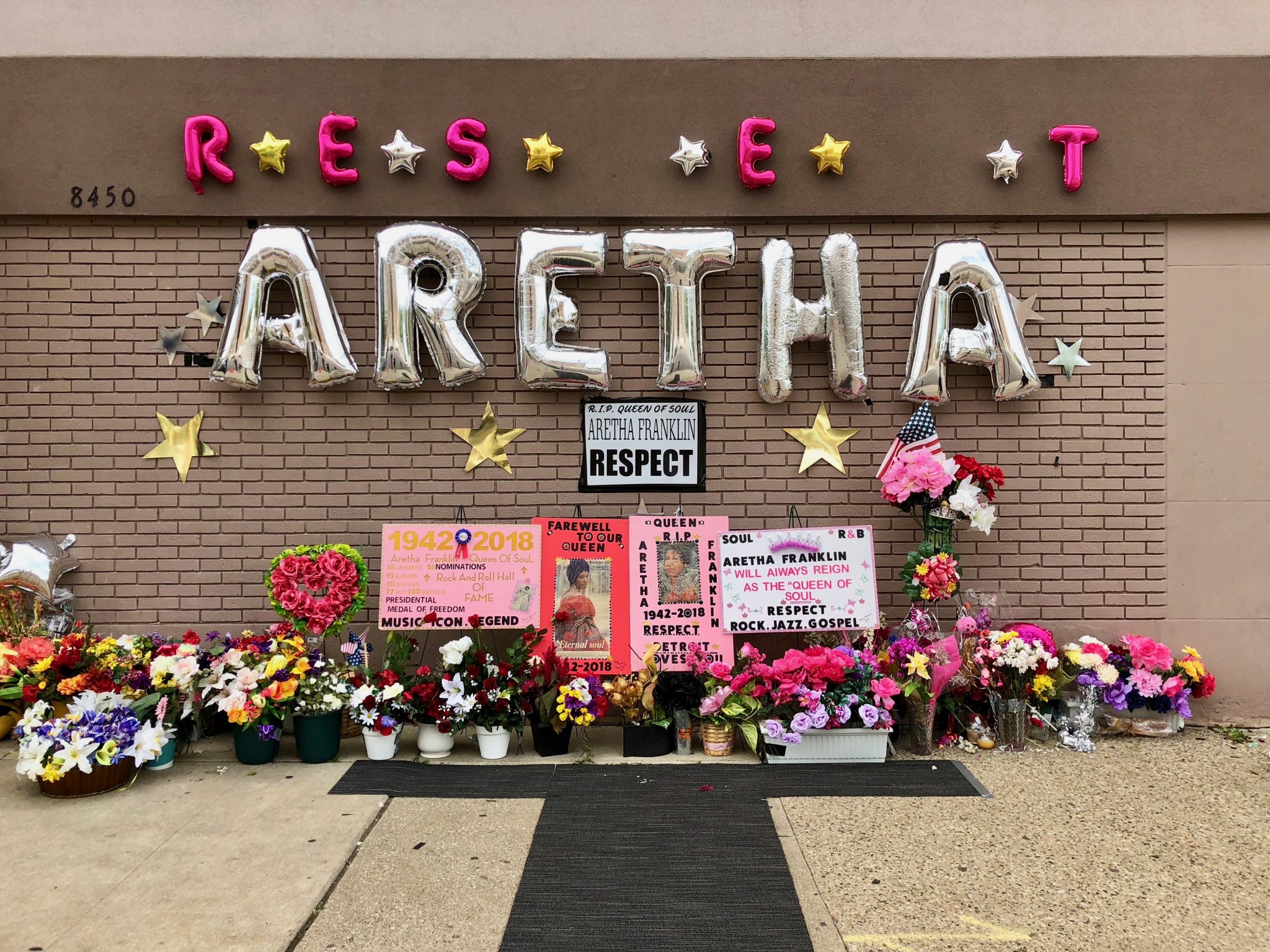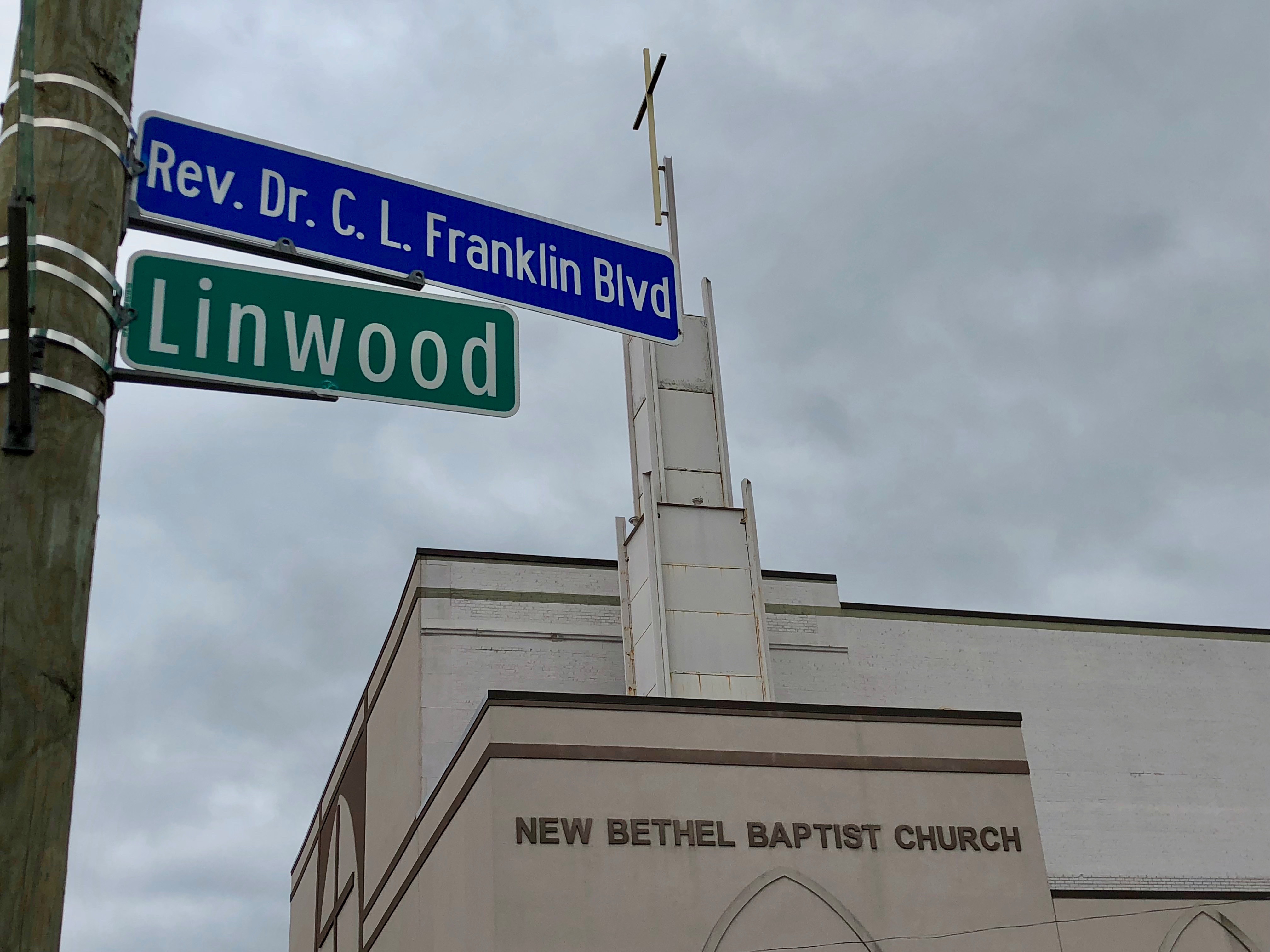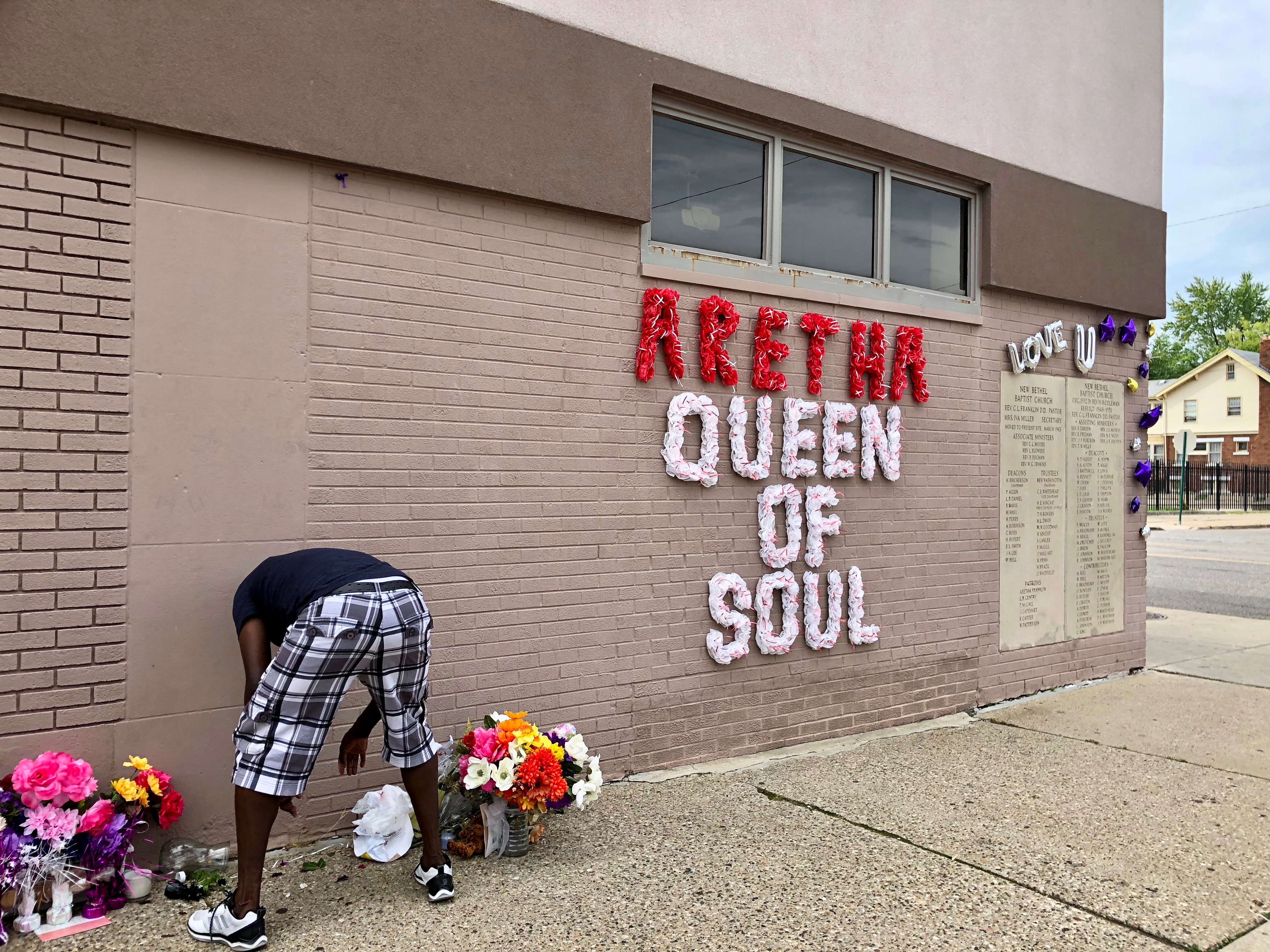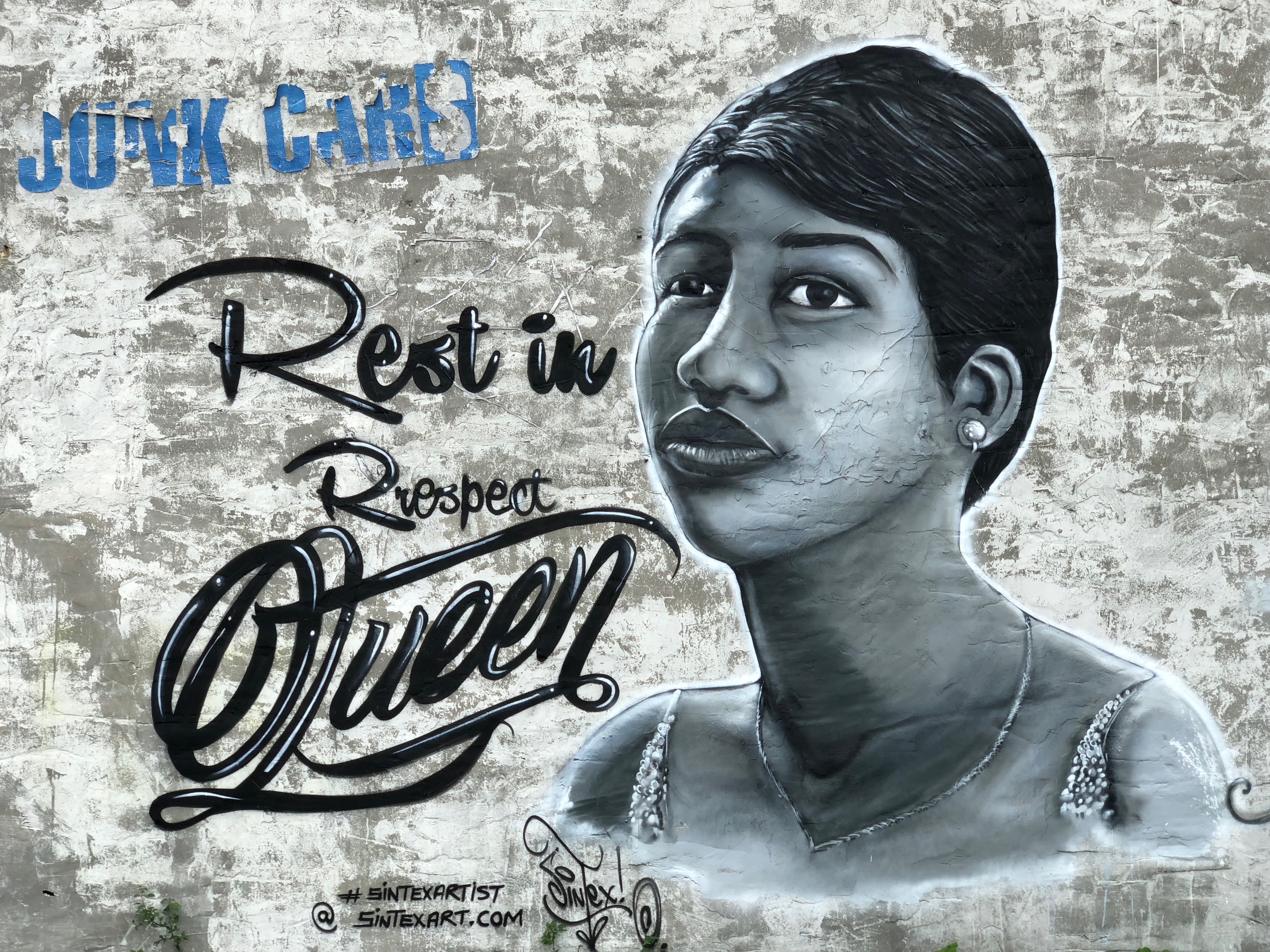“The Queen of Soul Stays Here” – How New Bethel Baptist Church Raised Aretha Franklin
New Bethel Baptist Church, now on Linwood and Philadelphia Streets in Detroit, was a focal point of Franklin’s career.

“Just like Graceland has the King of Rock, Elvis Pressley, the Queen of Soul stays here. No one gets that.”

Bill Jones and Sharon Thedford are standing outside New Bethel Baptist Church in Detroit, having a friendly disagreement about what Aretha Franklin is wearing. The two are longtime Detroiters, and longtime members of the church. Sharon Thedford says her grandmother used to bring her here every Sunday night.
“This is our family church,” Thedford says. “I got baptized here in the ‘70s. My grandma was a 67-year member here before she passed.”
New Bethel was the church when Thedford was growing up. She says it would get so full, the church would broadcast its services in the street.
“They had a big screen out,” Thedford says. “You couldn’t get in, there were so many people out. I was out here then, watching it on the big screen.”
Bill Jones didn’t always go to New Bethel. He heard about the church and its pastor, Clarence LaVaughn Franklin, on the radio. Jones says he joined the church after seeing Franklin preach.
“He was a dynamic pastor, singer, plus [Aretha Franklin] sung,” Jones says. “It was just like church. Real church, all the time.”
The Preacher with a “Million-Dollar Voice”
Reverend C.L. Franklin was born in Mississippi and spent time preaching around the South in the 1930s before he came to Detroit. When he became pastor of New Bethel in 1946, he brought the African American church tradition of “whooping” with him. It’s a kind of rhythmic and melodic vocal technique used to engage the congregation while preaching. Rev. Franklin’s “whoops” throughout his famous “Dry Bones in the Valley” sermon.
Franklin’s charismatic voice and thoughtful teachings drew crowds of followers. The church became a hub for African American music in Detroit, and a focal point for the Civil Rights Movement. Reverend Franklin organized the 1963 “Walk to Freedom” in Detroit. It’s where Doctor Martin Luther King Junior first delivered his “I Have a Dream” speech. The walk, with 125,000 participants, was the largest civil rights demonstration in U.S. history at that point in history.
Franklin was a singer in his own right. He became famous as the preacher with a “million-dollar voice.” He toured the country with his own gospel caravan, where a young Aretha Franklin performed. He befriended gospel legends like Mahalia Jackson, James Cleveland, and Clara Ward. But it wasn’t just his voice that set Reverend Franklin apart from his contemporaries.
Family friend and minister Jaspar Williams says Franklin revolutionized how people heard his voice.
“Nobody was recording at that time, in terms of preachers. Nobody even gave it a thought. Even he himself,” Williams says in a video. “This is one of those things that God allowed him to stumble into because the man named Battle heard him preach and then started his recording company and just followed him around.”
Aretha’s “Songs of Faith”
In fact, Joe Von Battle, the man who recorded Reverend Franklin’s sermons and hymns, was the first to release a recording of Aretha Franklin. Her first recordings were performed within the walls of the New Bethel Baptist Church, later released as the live album “Songs of Faith.” It was 1956, and Aretha Franklin was just 14-years-old.
Ten years after her first single, Aretha Franklin signed with Atlantic Records, launching her into pop stardom with hits like “Respect” and “Chain of Fools.” While secular music earned Franklin recognition among a general audience, Franklin’s gospel underpinnings earned her just as much acclaim and commercial success. Her seminal gospel album “Amazing Grace” went double platinum in 1972.
Aretha Franklin was never too far from New Bethel Baptist Church. She returned to the church to record her 1987 Grammy-award winning album “One Lord, One Faith, One Baptism,” with the church’s neon cross is pictured on the record cover. On holidays, New Bethel became a concert hall where Aretha would headline gospel festivals. On other occasions, New Bethel became a place of mourning, when members of the Franklin family passed away.
Detroit’s “Graceland”
When news broke that Aretha Franklin had died, Terry Tarrant rushed down from the suburbs to New Bethel.
“I had my boom box down here,” Tarrant says. “I was playing music and I bought two pots of roses and then everyone saw me putting the roses down, then everyone started bringing flowers and it just started blossoming.”

Tarrant says he’s been coming down to the church every day as Aretha’s funeral approaches. He maintains the memorial in between waves of visiting fans. He straightens the signs knocked down by the wind, directs cars on the street, takes pictures of families from out of town. Tarrant says he does it all because he respects Aretha more than any other Detroit artists.
“Because all of Motown left,” Tarrant says. “She stayed with us.”
Tarrant says Detroit needs to understand the musical legacy Aretha Franklin left.
“Just like Graceland has the King of Rock, Elvis Pressley, the Queen of Soul stays here,” Tarrant says. “No one gets that.”

